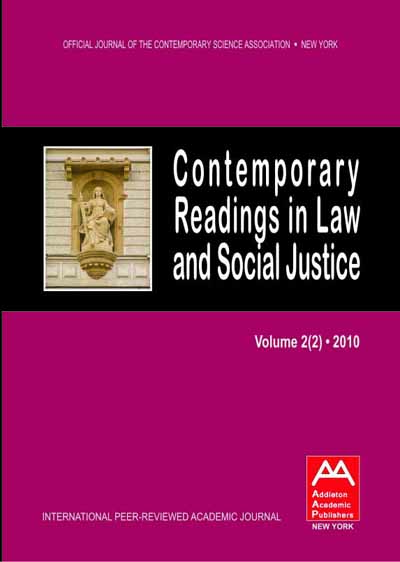THEORIZING TERRORISM: TERRORISM AS MORAL ACTION
THEORIZING TERRORISM: TERRORISM AS MORAL ACTION
Author(s): Noémie Bouhana, Per-Olof H. WikströmSubject(s): Social Sciences
Published by: Addleton Academic Publishers
Keywords: terrorism; Situational Action Theory; moral; framework
Summary/Abstract: We report on the findings of a scoping study. Our remit was to establish whether a theory of moral action and crime causation – specifically, Situational Action Theory – could provide a framework for understanding the causes of acts of terrorism, organising current knowledge, and outlining a systematic research agenda. This study is the first step towards realising such a program. While much scholarship on the causes of terrorist acts has accumulated, the field still lacks overarching theoretical frameworks. This is due, in part, to conceptual and methodological difficulties, including a lack of access to reliable empirical data and an inability to clearly define the object of study. This under-theorisation is not trivial, but impedes knowledge integration and the generation of new facts. We make the case that acts of terrorism can be meaningfully and innovatively conceptualised as moral action (actions guided by what is the right or wrong thing to do in a particular circumstance). Moral actions, including acts of terrorism, result from both rational (deliberation) and experiential (habituation) processes, themselves the outcome of the interaction between individual and environment – specifically, the interaction between a person’s morality and the moral context in which he or she operates. We contend that the Situational Action Theory is a powerful framework for organising and interpreting known facts, discriminating between causal factors and mere marker or symptoms, generating new facts and ideas, and, ultimately, building a robust explanation of terrorist acts (including suicide terrorism), from which to devise effective prevention strategies. We submit that recent and current conflicts have driven home the need to understand the moral contexts in which people develop and act, and how changes in these contexts can result in, sometimes drastic, changes in action. We argue that, with Situational Action Theory, the “winning hearts and minds” strategy gets its scientific framework.
Journal: Contemporary Readings in Law and Social Justice
- Issue Year: II/2010
- Issue No: 2
- Page Range: 9-79
- Page Count: 71
- Language: English
- Content File-PDF

